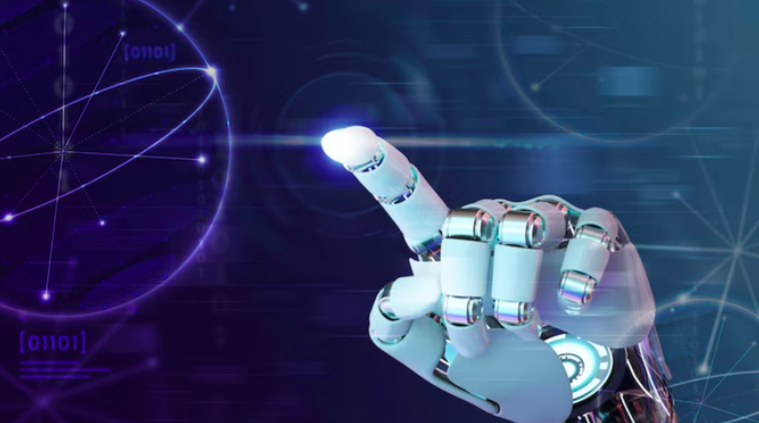With The The Rise of AI in Everyday Life: How Is It Changing Our World?
AI is reshaping the world—one algorithm at a time.

As this technology continues to evolve, it’s reshaping industries, revolutionizing how we interact with the world, and changing the way we live and work.
**Here are just some of the many ways that AI is changing our world, even in our everyday life…..
~~~~~ AI in Our Homes ~~~~~
One of the most significant ways AI is impacting everyday life is in the home. Smart devices and voice-activated assistants make it easier than ever to control everything from lighting and temperature to ordering groceries or managing household schedules. AI-powered devices like smart thermostats learn our preferences, adjusting the temperature automatically for optimal comfort and energy savings. Virtual assistants help us manage daily tasks, send reminders, and even answer questions, making life more convenient and efficient.
~~~~~ AI in Entertainment and Media ~~~~~
AI has completely revolutionized the way we consume entertainment and media. From streaming platforms like Netflix and Spotify that use algorithms to recommend shows, movies, and music based on our preferences to social media platforms that curate content tailored to our interests, AI ensures that we’re always engaged with content that resonates with us. AI is also used in gaming, where it powers more dynamic and intelligent characters and environments, creating immersive experiences that evolve with the player.
~~~~~ AI in Healthcare ~~~~~
The healthcare industry is seeing groundbreaking changes thanks to AI. Machine learning algorithms are being used to diagnose diseases faster and more accurately than ever before. AI-powered tools assist doctors by analyzing medical data, identifying patterns, and offering insights that can lead to earlier detection and better treatment outcomes. Virtual health assistants, telemedicine, and wearable health devices also use AI to track patient health in real-time, offering a more personalized approach to wellness.
~~~~~ AI in Transportation ~~~~~
Self-driving cars are one of the most talked-about applications of AI in transportation, but AI's role extends far beyond autonomous vehicles. AI is used in traffic management systems, ride-sharing apps, and navigation tools to provide more efficient and safer transportation solutions. Autonomous delivery drones and robots are also being developed to streamline logistics and bring packages directly to consumers’ doorsteps, revolutionizing e-commerce and last-mile delivery.
~~~~~ AI in the Workplace ~~~~~
In the workplace, AI is automating tasks, improving productivity, and enabling businesses to make more informed decisions. From AI-driven customer service chatbots to tools that analyze data for better marketing strategies, AI is transforming how companies operate. While there is concern about AI replacing certain jobs, it also opens new avenues for growth, creativity, and innovation, allowing workers to focus on more strategic and meaningful tasks.
~~~~~ The Future of AI in Everyday Life ~~~~~
As AI continues to evolve, its influence will only grow stronger. AI is expected to play an even more prominent role in fields like education, where it can offer personalized learning experiences, and in environmental protection, where it can help monitor ecosystems and combat climate change. However, with its rise comes questions about privacy, ethics, and the potential for misuse. As AI becomes more intertwined with our daily lives, it's essential to find the balance between harnessing its power for good while addressing the risks it may pose.

